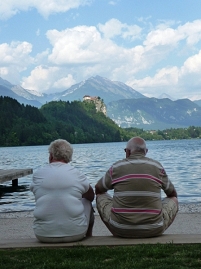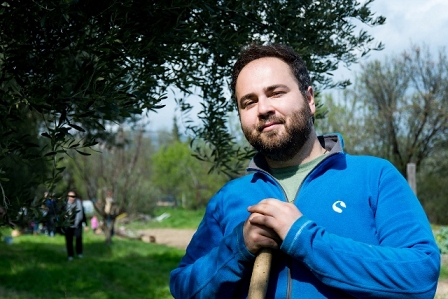Erstellt am: 1. 4. 2016 - 12:55 Uhr
A Revolution Based on Pleasure
FM4 Reality Check
Listen to the programme in the FM4 Player or subscribe to the podcast and get the whole programme after the show
About a fifth of all adults around the world will be obese by 2025, and in some rich developed countries the obesity rate might be a third. That’s according to a new study in the medical journal The Lancet – which says the rise will burden our health services with rises in diabetes, high-blood pressure and cancer. A disasterous health bomb is ticking away. Already, there are now more adults in the world classified as obese than underweight.
We are eating too much sugar and taking too little exercise.
Less carbon, less carbohydrates, please.

chris cummins
How are we going to tackle this huge crisis? Well, some ideas have been building more bike lanes – and this Sunday’s Radparade in Vienna is an opportunity to push for that plan to take excess carbon out of the atmosphere and excess carbohydrates out of our bodies. Or perhaps were should take the more controversial approach taxing unhealthy food.
But what about taking more time to appreciate what food is and what it means to us. Clearly, in the developed world, our relationship with food has been knocked off kilter. We are always in a rush although we are not always sure what we are rushing for. More time to do overhasty work or watch DVDs? Who hasn’t snatched a sandwich on the way to work and munched it on the underground, wolfed down food in front of a computer screen, or gobbled up a pizza in front of the telly?
I am writing these lines with a giant Danish pastry within reaching distance of my grasping hand. But how can we have a healthy relationship with our food if we don’t think about that relationship.
We have too much food, we throw much of it away, and the bits we keep make us fat without us really taking time to appreciate it, and meanwhile our appetite for plump avocados and ripe papayas compete with precious water supplies in poor countries and are shifted across the world at huge costs.
Let’s be honest, our relationship with food is messed up.

Theophilos Gerontopoulos
Pavlos Georgiadis is a food author, olive grower and social entrepreneur. He told Chris Cummins that the first step is to shop wisely and then to “eat consciously”. When I meet him, over breakfast in Schloss Leopoldskron where he is taking part in a Salzburg Global Seminar, he urges me to think about the coffee I am slurping:
Dieses Element ist nicht mehr verfügbar
“Let’s try to imagine the shape of the coffee plant, the shape and the colour of the coffee bean and the hands of the producer.” I do as he says and my mind’s eye drifts back to one of my favourite ever journeys – to the coffee growing cloud forests on Nicaragua. I enjoy this sort of meditative exercise during busy mornings. But is there a practical reason for doing this?

Chris Cummins
“When we enrich the experiences of our daily lives with this sort of visualisation, we become more aware and more conscious. And then at some point it occurs to us that we don’t want to be drinking a coffee that deprives water and food from someone else in the world.”
A system that works for humans and for the planet
So for Georgiadis the visualisation process is about making informed choices and becoming more responsible citizens, but he has a grander claim: “Gradually this influences our political systems to come up with the right legislation that is actually working for human beings and is working for the planet.”
Georgiadis like to talk about the “ecology of time” and says, after a period of ever more dramatic acceleration, the younger generations have a unique opportunity to understand to rhythms and needs of the things that we consume. “The good thing about good food is that by improving your food choices you are improving your enjoyment of life.”
He describes food choices as a “revolutionary act.” But it is a revolution that is not based on violence, guns or money but on “it is the type of revolution that is based the pleasure of what the Earth is giving us.”



